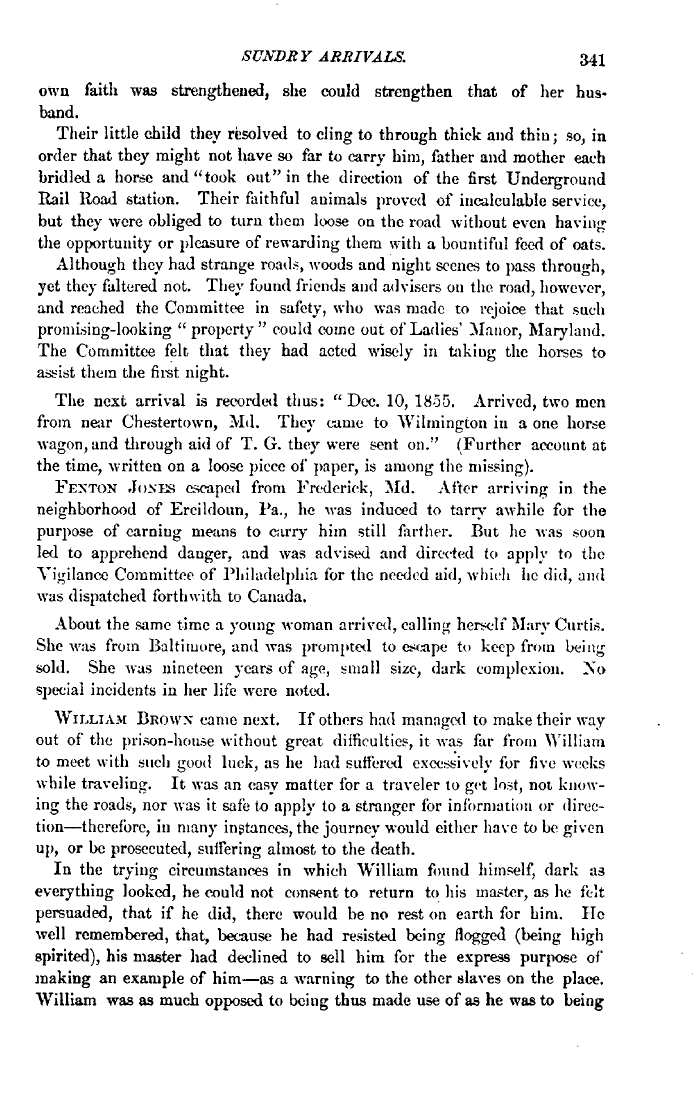 |
||||
 |
||||
| SUATJItr ARRIVALS. 341 own faith was strengthened, she could strengthen that of her husband. Their little child they resolved to cling to through thick and thiu; so, in order that they might not have so far to carry him, father and mother each bridled a horse and "took out" in the direction of the first Underground Rail Road station. Their faithful animals proved of incalculable service, but they were obliged to turn them loose on the road without even having the opportunity or pleasure of rewarding them with a bountiful feed of oats. Although they had strange roads, woods and night scenes to jxiss through, yet they faltered not. They found friends and advisers on the road, however, and rnaehed the Committee in safety, who was made to rejoice that such proini.sing-looking " property " could come out of Ladies' Manor, Maryland. The Committee felt that they had acted wisely in takiug the horses to assist them the first night. The next arrival is recorded thus: " Dec. 10, 1855. Arrived, two men from near Chestertown, Mil. They came to Wilrnington in a one horse wagon, and through aid of T. G. they were sent on." (Further account at the time, written on a loose piece of paper, is among the missing). FEXTON JOMB escaped from Frederick, Aid. After arriving in the neighborhood of Ercildoun, Fa., he was induced to tarry awhile for the purpose of earning means to curry him still farther. But lie was soon led to apprehend danger, and was advised and directed to apply to the Vigilance Committee of Philadelphia tor the needed aid, which he did, and was dispatched forthwith, to Canada. About the same time a young woman arrived, calling hersc-lf Mary Curtis. She was from Baltimore, and was prompted to escape to keep from being sold. She was nineteen years of age, small size, dark complexion. No special incidents in her life were noted. WILLIAM BROWN' came next. If others had managed to make their way out of the prison-house without great difficulties, it was far from William to meet with sucli good luck, as he Lad suffered excessively for five weeks while traveling. It was an easy matter for a traveler to get lost, not knowing the roads, nor was it safe to apply to a stranger for information or direction—therefore, in many instances, the journey would either have to be given up, or be prosecuted, suffering almost to the death. In the trying circuinstances in which William found himself, dark as everything looked, he could not consent to return to his master, as he felt persuaded, that if he did, there would be no rest on earth for him. lie well remembered, that, because he had resisted being flogged (being high spirited), his master had declined to sell him for the express purpose of making an example of him—as a warning to the other slaves on the place. William was as much opposed to being thus made use of as he was to being |